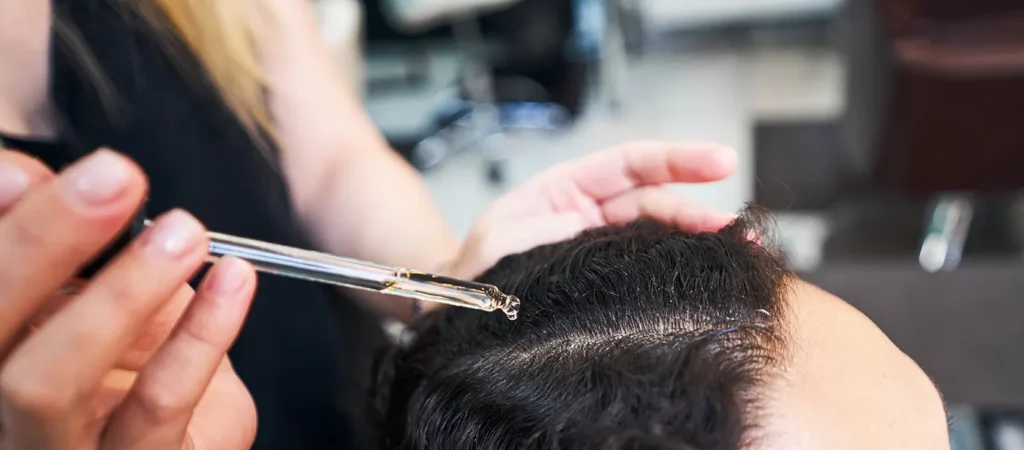Alopecia
In recent years, there have been many exciting innovations in the diagnosis and treatment of hair loss. We now understand this condition much better and can treat many of the causes of hair loss that were previously untreatable. New innovations available at the clinic include JAK inhibitors, PRP injections, cortisone injections, laser treatments, and prescription oral and topical medications. Contact us now to see what we can do for you.

Types of Hair Loss
The most common type of hair loss is called androgenetic alopecia, which affects up to 50% of women by the age of 60 and up to 85% of men by age 50. Androgenetic alopecia (also known as male or female pattern hair loss) is typically genetic in nature. Men tend to start thinning from their frontal hairline, while women tend to thin diffusely over their scalp. There are several treatments available for this type of hair loss, and a combination approach tends to work best. Oral options include fiinasteride (Propecia) for men and spironolactone for women. These medications block testosterone from causing thinning at the level of the hair follicle. We also use oral minoxidil in select patients. Topical minoxidil (Rogaine) is an FDA approved, over the counter option for hair loss. Nutritional supplements can also help support hair growth. In addition, our office offers Platelet Rich Plasma (PRP) treatments. PRP is an office procedure that uses your own growth factors to stimulate hair growth via a series of injections into the scalp.
Another common type of hair loss is alopecia areata, which occurs when a person’s immune system attacks hair follicles. This type of hair loss is usually reversible. We treat this with a series of steroid injections, which calms inflammation around the hair follicle to stop further destruction and promote regrowth.
Telogen effluvium occurs when many hair follicles enter the resting phase of the hair growth cycle, called telogen, but the next phase does not occur. This causes hair to fall out. Medical conditions such as childbirth, infection, thyroid condition, surgery and stress can trigger this type of hair loss. Telogen effluvium may also result from a vitamin or mineral deficiency, such as iron deficiency.
Traction alopecia is a form of scarring hair loss that typically results from tight hairstyles that involve repetitive pulling and trauma to the hair. This type of hair loss is permanent and can be difficult to treat, but can be prevented by using gentle hairstyling techniques.
Frontal fibrosing alopecia is another form of scarring, permanent hair loss that tends to affect women over 50 years old. It presents as a band of hair loss along the frontal hairline. We treat this type of hair loss with a combination of anti-inflammatory oral, topical and injection medications.
Other less common types of alopecia include Anagen Effluvium, Cicatricial alopecia, Alopecia Totalis, Alopecia Universalis, Alopecia Ophiasis, Alopecia Barbae, and Tinea Capitis.





